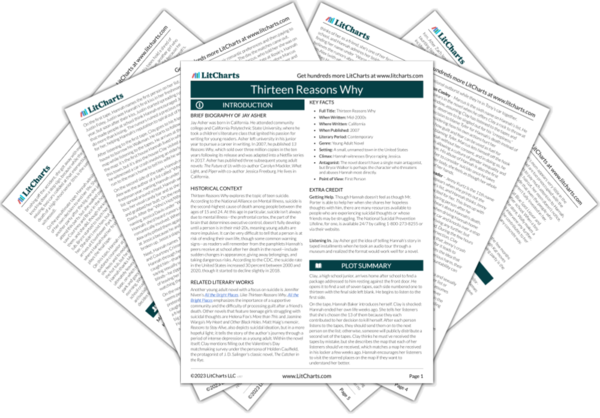Hannah and Ryan’s friendship begins slowly—at first, they’re not ready to trust each other fully, which is clear from the fact that they only share happy poems with each other. Hannah seems to feel like she’s made a genuine connection with Ryan. He values her work and spends time analyzing it. However, she doesn’t relinquish control over it entirely, because she doesn’t tell him the circumstances of her writing it; she’s unable to fully express the extent of her hopelessness. Clay’s realization that it’s him in the poem shows how much closer he’s grown to Hannah over the course of listening to the tapes.
